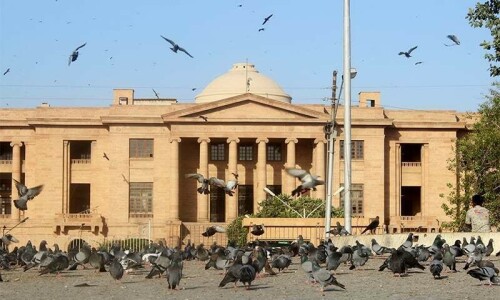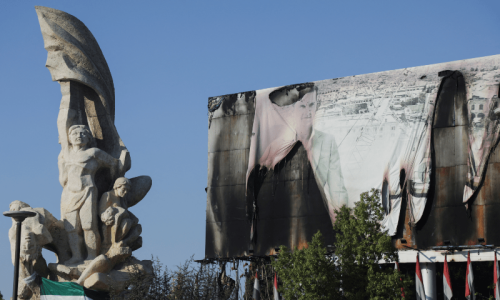ISLAMABAD: The Finance Bill 2018 has amended the Income Tax Ordinance (ITO) binding banks to provide details of account holders and their day-to-day transactions to the Federal Board of Revenue (FBR) on a monthly basis.
Earlier, a Section 165A was inserted in the ITO to empower banking companies to provide online access to their central database that contains details of account holders. However, the banks denied the access for reason of secrecy and confidentiality of banking data.
For resolving the issue, the bill now binds banks to provide details of tax collected on cash withdrawal exceeding Rs50,000 from filers and non-filers in respect of such accounts where cash withdrawal exceeding Rs1 million or more during each calendar month.
Moreover, the threshold for providing details of deposit in any account during a month is being enhanced from Rs1m to Rs10m. The threshold of credit card is being increase from Rs100,000 to Rs200,000 per month.
In order to discourage whitening of untaxed money and legitimising tax evaded incomes through this conduit, an amendment has been made to Section 111(4) of the ITO whereby persons would be required to explain the source of investment if the amount of foreign remittances in a year exceeds Rs10m.
A new section 116A has been inserted whereby it has been made mandatory for resident individuals to furnish a foreign income and assets statement along with return of income if such individual earns foreign income equivalent to or exceeding $10,000 or is the owner of foreign assets having a value equivalent to or exceeding $100,000.
The foreign income and assets statement shall contain particulars/details regarding total foreign assets and liabilities (as on the last day of the tax year) as well as details of foreign assets transferred to another person during the tax year and consideration received in lieu of such transfer. Complete particulars of foreign income earned and the expenditures incurred for earning such income will also be furnished through this statement.
If an individual meets the conditions stipulated in Section 116A of the ITO 2001 with respect to earning of foreign income or ownership of foreign assets, such individual will mandatorily be required to file an income tax return along with foreign income and assets statement in terms of section 114(2)(f) of the ordinance.
Through the Income Tax (Amendment) Ordinance 2018 a proviso has been added in sub-section (5) of section 114 whereby the time limit for issuance of a notice calling for return shall not apply if the commissioner is satisfied on the basis of reasons to be recorded in writing that a person who failed to furnish his return has foreign income or owns foreign assets.
A person who fails to furnish Foreign Income and Assets statement within the due date shall also be subject to levy of penalty of 2pc of the foreign income or value of the foreign assets for each year of default under section 182 of the ITO 2001.
In the last three to four years, Pakistan has become signatory to various international tax agreements. The primary purpose of these agreements is to prevent profit shifting from Pakistan and safeguard the tax base. Through these agreements data would be exchanged between various tax jurisdictions. International tax organisations such as OECD, UN and CATA would facilitate jurisdictions in plugging anti-abuse measures in the domestic tax laws through their recommendations.
Out of a total of 15 actions proposed by OECD, five have already been implemented by Pakistan. Four actions are required to be implemented through administrative measures and assistance by international tax auditors in audit.
Through the finance bill the six anti-abuse provisions were now implemented -- avoiding tax by splitting the composite contracts into number of contracts; taxation of gain arising on transfer of assets located in Pakistan and transferred to non-residents outside Pakistan through sale of shares indirectly; availing current loopholes in tax legislation to avoid payment of tax in Pakistan by non-residents whereas residents are taxable.
The other provisions are designing a tax avoidance scheme by introducing a new entity with no economic substance in jurisdictions with which Pakistan has favourable treaties; the provision of law is already in the Ordinance and is to be streamlined in accordance with international best practices to plug tax avoidance loopholes and taxing passive income parked outside Pakistan by domestic multinational companies for tax deferral.
Exemptions
The income tax for Khyber Pakhtunkhwa Retirement Benefits and Death Compensation Fund, KP General Provident Investment Fund and KP Pension Fund is exempted from tax.
Also donations of Pakistan Sweet Home, Angels and Fairies Place; Al-Shifa Trust Eye Hospital; Aziz Tabba Foundation; Sindh Institute of Urology and Transplantation, SIUT Trust and Society for the Welfare of SIUT; Sharif Trust; The Kidney Centre Post Graduate Institute and Pakistan Disabled Foundation are also exempted.
Through the finance bill, the income of Third Pakistan International Sukuk Company Ltd has been proposed to be exempted.
The rate of tax, under section 152 in the case of CR-Norinco JV (Chinese contractor) as recipient, on payments arising out of commercial contract agreement signed with the Government of Punjab for installation of electrical and mechanical (E&M) equipment for construction of the Lahore Orange Line Metro Train Project, has been proposed to be 6pc of the gross amount of payment.
Through the finance bill, it is proposed that the provisions of section 148 shall not apply for import of plant, machinery and equipment including dumpers and special purposes motor vehicles imported by the following for construction of Sukkur-Multan section of Karachi-Peshawar Motorway project and Karakorum Highway (KKH) Phase-II (Thakot to Havellian Section) of CPEC project respectively, by China State Construction Engineering Corporation Ltd (CSCEC); and China Communication Construction Company (.
It has also been proposed that the provisions of section 148 of the ITO 200 shall not apply for import of construction materials or goods up to a maximum of Rs10.898bn imported by CSCEC for construction of Sukkur-Multan section of Karachi Peshawar Motorway project of National Highway Authority under CPEC.
However, the provisions of section 148 shall not apply on 35 armoured and security vehicles imported by or for Ministry of Foreign Affairs, Government of Pakistan meant for security of visiting foreign dignitaries subject to certain conditions.
Also it will not apply on the import of equipment to be furnished or installed for rail-based mass transit projects in Lahore, Karachi, Peshawar and Quetta under CPEC.
Published in Dawn, April 29th, 2018













































